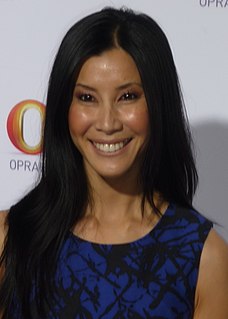A Quote by Nick Cave
I'm a kind of hard-wired pessimist. I can't help but see the world in a certain kind of way.
Related Quotes
You see sort of the difference in the way that Marco Rubio was talking in that kind of way. That kind of [Donald] Trump imitating way, which is designed to connect with certain people who want to see that from their political candidates as opposed to kind of speaking in the measured tones that we`re used to from Republican politicians who are trying to become president.
I know I have patterns and I've always tried hard to avoid them. There are definitely certain things in my music, if I'm looking back, "Well, that was a period where I was experimenting with a certain kind of chord structure or a certain kind of sound." I've tried really hard, but I'd be hard pressed to tell you what that sound, what that tangible sound of "me" is.
For film, you know, the Tarantinos and Nolans of the world who are very focused on a certain kind of film aesthetic and a certain kind of presentation, to be honest, that comes from a place of privilege. It comes from a place of always having access to such, but when you ain't never - you can't see it because you can't even get to it.
Art movements are always linked to some kind of turmoil. We can look at history and see that [political turmoil is] fertile ground for art. I also think that it gives artists something, a way of kind of processing. My friends and I have all been super motivated to work and to do the work that we need to and want to and think should be in the world. Hard times are really a fire under your ass to prioritize and think, "Okay, how can I challenge myself to put something in the world that wasn't there that can reach other folks and help them to process"?
There's this kind of almost - kind of a weird kind of elitism that says well maybe - maybe certain people in certain parts of the world shouldn't be free; maybe it's best just to let them sit in these tyrannical societies. And our foreign policy rejects that concept. And we don't accept it. And so we're working.
When you're working as an actor, you don't think that when you get out of school, it's going to be so hard to get a job. Just to get a job. Any job. Whatsoever. You don't think that people are going to see you in a certain way. Uta Hagen said this, "In my life, I see myself as just this, you know, kind of flamboyant, kind of sexy middle-aged woman. And then I see myself onscreen, and I go 'Oh my God.'" And it's the same thing with me. I didn't see myself any different from my white counterparts in school. I just didn't!
I, perhaps, at that stage, had the kind of ambition that others may have had; you know, namely based on the concept that if you were trained the world was out there waiting for you to provide a certain kind of leadership and give you an opportunity. But with the Depression, I began to see that there were certain social forces over which the individual had very little control.
I think that's something people need to convey because you see all these celebrity moms out there, and the perception is they can do it all, but they have sooo much help. And it's kind of an unfair image to project for many women, because it is really hard, and if you have help, you should indicate you have help.



































